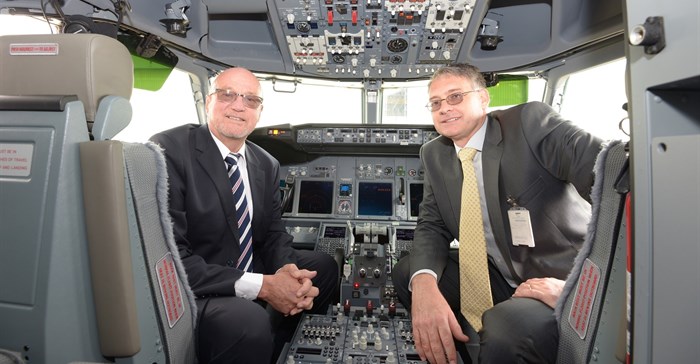
Top stories






AutomotiveHilux Custom Builds offers purpose-built solutions for your business
Toyota South Africa Motors 16 Feb 2026
More news


Marketing & Media
Ads are coming to AI. Does that really have to be such a bad thing?














He adds: “This also coincides with two major developments for our airline: the commencement shortly of scheduled flights to the Atlantic Ocean island of Saint Helena, and a new codeshare agreement between Comair and Qatar Airways that will add five new African destinations to the Qatar Airways route map.
Comair, this year, celebrates its 70th year of operation and the 20th anniversary of its partnership with British Airways.
Venter adds: “This acquisition is a strong indicator of our confidence in leisure and business travel, and that’s borne out by IATA (the International Air Travel Association), whose recent statistics show that in November African airlines enjoyed their fifth consecutive month of growth.
“The new aircraft will help us embrace opportunities like the new Saint Helena route. In addition to our existing British Airways (operated by Comair) route network which includes South Africa, Mauritius, Zimbabwe, Zambia and Namibia. This access to centrally-located airports within South Africa, sub-Saharan Africa and in the Indian Ocean islands allows our valued customers, access to diverse business and leisure destinations in the region.”
Venter notes that the new aircraft will be fitted with split-scimitar winglets: vertical wingtip extensions that reduce drag and provide lift, cutting fuel consumption and lowering the aircraft’s carbon footprint.
The first iteration of the Next Generation 737 in 1997 proved popular with airlines and passengers. Combined with quieter, more fuel-efficient engines, the 737-800 is capable of trans-continental flight. “The Boeing Next Generation 737-800 is popular on routes around the world. As of last year, 5,000 were in operation and another 4,400 737s had been ordered,” Venter explains.
The new aircraft will seat up to 160 passengers and an improvement in the design of the overhead bins will enable a 50% increase in carry-on bags - the overall customer experience will be enhanced.